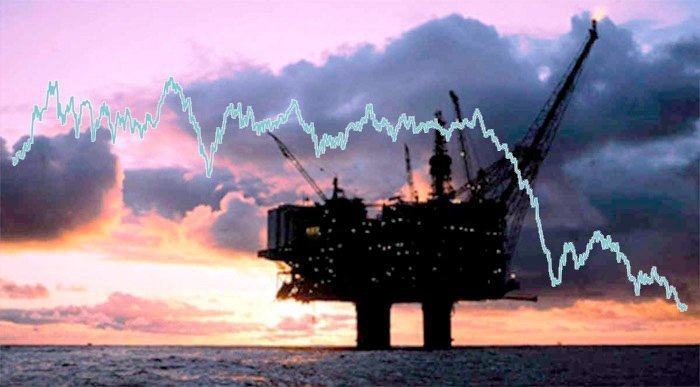
Oil is the number one strategic product! Without oil and gas, the modern society as we know it, will fall apart, collapse and famine will follow. Forget the so-called Paris Agreement. Fossil sources of energy still amount to 85 percent of the consumption. The entire modern capitalist way of production, including agriculture, transport, commerce and storage is totally dependent on oil, coal and gas. But there are but a few large producers of oil and gas, and most of the largest consumers lack sufficient sources of their own. In the article “The War in Syria and Fear of the Empty Space” we explored the struggle to re-divide the world after the fall of The Soviet Union. Now we will focus on the increasingly desperate race for oil and gas.
English translation: Anne Merethe Erstad
Oil and gas rule
Allegedly, the world’s countries have agreed to phase out fossil energy. The problem is, however, that they haven’t said much about how this is supposed to happen in the real world. The fact is; after 30 years of climate summits the world’s energy mix still contains 85 percent fossil energy. Oil, gas and coal are what keep the modern (as well as the not so modern) society going. And for as long as this remains the reality of the situation, oil and gas will remain the number one strategic product. (The second most important strategic product is grain, which we will look into later.)
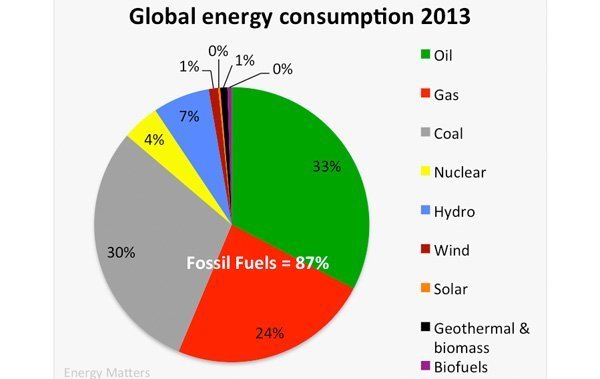
In 2013 the world’s energy mix appeared as in this illustration chart (source BP). Petroleum: 32,4 percent, natural gas: 23,7 percent and coal: 30,1 percent. Fossil energy: 86 percent. Modern, industrialised agriculture depends on a high consumption of fossil energy. All the way from ploughing, fertilising and sowing and on to transport, packing and storage it’s oil and gas all along. In 1994, 1500 oil equivalents were necessary in order to feed one US citizen for a year. The globalised world trade is a gigantic energy drain, so these numbers haven’t decreased in the following decades.
Industry, transport, trade, yes even telecommunications and the Internet – for the world as a whole, it’s all about oil and gas. (In Norway, we’re lucky to have so much renewable hydroelectric power; the energy mix turns out differently. But for the world as a whole, this is the picture.) In 2010 the Internet required about 10 percent of total energy consumption in the US.
Until another source of energy is found to replace the fossil energy, and until we have reduced the high energy demand by other ways of producing, living and communicating, oil and gas will rule the roost.
Stop oil and gas supplies tomorrow, and the modern society as we know it will end within a couple of weeks. Death by famine and desperate need and distress will follow.
The sources of energy are (very) unevenly spread
“The good Lord didn’t see fit to put oil and gas only where there are democratically elected regimes friendly to the United States. Occasionally we have to operate in places where, all things considered, one would not normally choose to go. But, we go where the business is.»
- Dick Cheney: Speech delivered at the Cato Institute, (June 23, 1998)
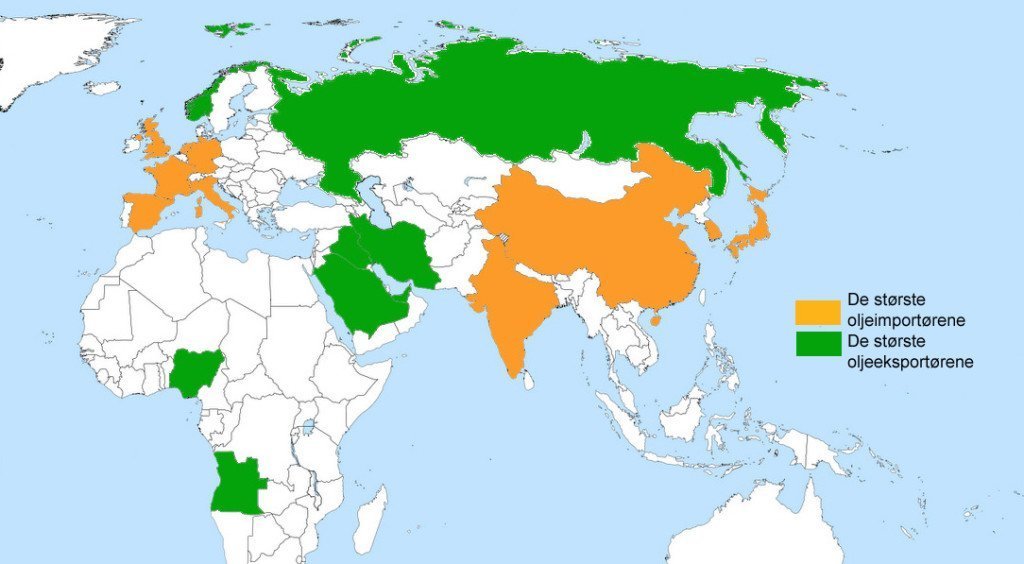
The two largest countries in the world, China and India, are both huge importers of oil. The same goes for the largest industrial countries in Europe. The struggle to secure their part of the vital oil is a rock hard fight to survive as industrial nations.
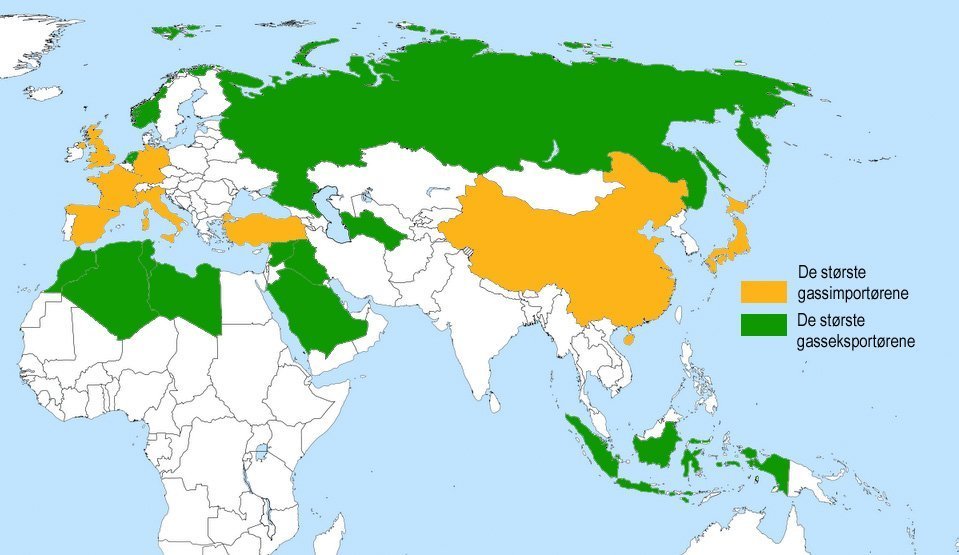
For the very simple reason that the resources and the consumption is so unevenly spread, a greater part of foreign policies is focused on controlling the oil and gas sources as well as the transportation of the products to the consumers. The war in Afghanistan was partly about possible oil and gas lines from Central Asia. The wars in Iraq, Libya and Ukraine aim directly at controlling the oil and gas as well as the pipeline transportation of these products.
The energy poor Europe
For a short period of time Great Britain was an oil and gas exporting country. That epoch has come to an end. Now the islands import more oil and gas than they export.
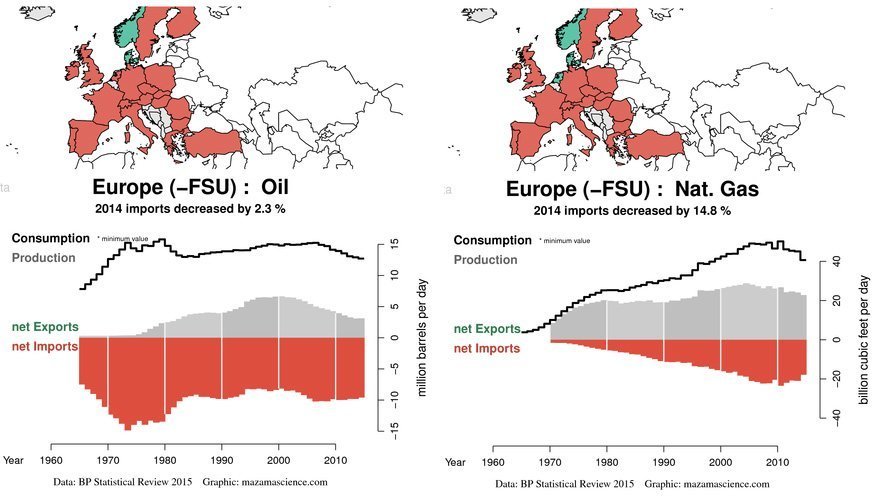
EU has made an attempt to reduce the dependency on oil and gas import by providing instructions on wind, bio and solar energy. However, the problem is that these are subsidised forms of energy, and the costs per kWh tend to be far higher than the costs of fossil energy. EUs natural gas derives from just a few exporters.
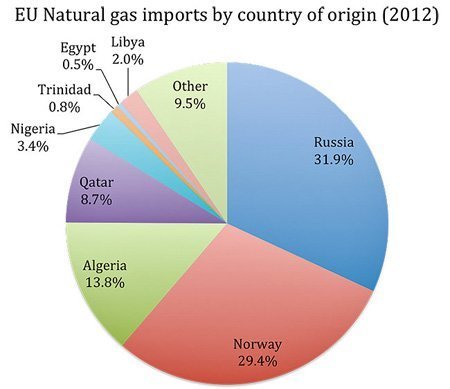
Norway and Russia provides about one third each of EU’s import of natural gas. As we know, the US has provoked the crisis in Ukraine and ordered EU to institute sanctions against Russia, but that is easier said than done for the European Union. The sanctions hurt the EU countries almost as much as they hurt Russia – in some cases perhaps even more.
Pipelineistan
The fight over the projected roads for oil and gas pipelines is a bitter one, and the less fossil energy the industrial countries have, the harder they fight. USA’s marionette regime in Ukraine attempts to damage the Russian export of oil and gas to Europe, in spite of the fact that Ukraine totally depends on this transport. This is why Russia worked on a plan to transport gas southwards and up through the Balkans – the so-called South Stream project.
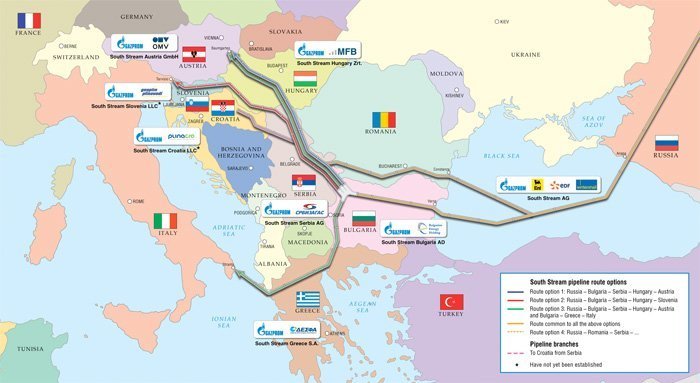
This project has been shelved due to pressure from the USA, creating disappointment and harming several EU-countries, especially Italy and the Balkan countries.
The war in Syria is very much about oil and gas as well, as shown in the article “The Syrian war – it’s the gas, stupid!” (In Norwegian).
According to Financial Times, the oil dictatorship of Qatar, the wealthiest country in the world, has invested three billion dollars in the jihadists in Syria. To Qatar, which ranks third among the world’s largest producers of gas, this is a fairly small amount of money. But it’s sufficient to make organisations like IS rich – in money and weapons. By the way; Qatar is a part of the US lead coalition battling IS.
Qatar wants a Sunni controlled oil and gas pipeline from the Persian Gulf to a Syrian port by the Mediterranean Sea. However, that requires a removal of Bashar al Assad in Syria in order to replace the government with an oil marionette.
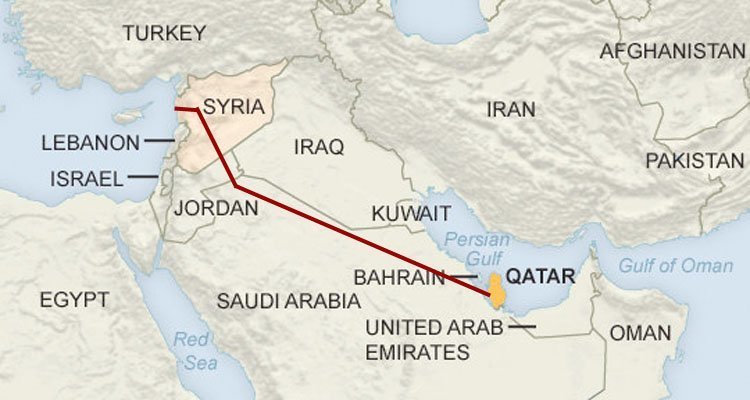
At least since July 2015 the Norwegian government has been aware that oil from IS controlled Syrian areas are being smuggled to Turkey, where the oil is sold cheaply. This is documented in a secret report compiled by the consultant company Rystad Energi, ordered by the Norwegian Ministry of Foreign Affairs.
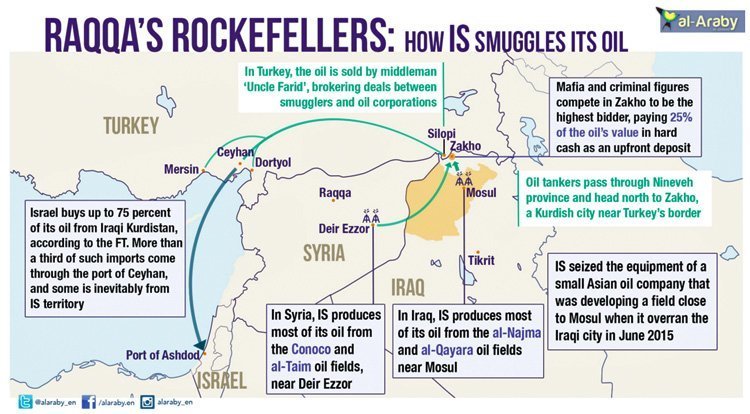
Added up, all of the above underline my main point here; namely that the industrial countries’ lack of oil and gas make them so desperate, there are no lies they won’t present and no crime they won’t commit, in order to secure their access to oil and gas.
_
PS:
Another drama may be coming up in connection to the pipelines in Central Asia towards China, but that will have to be the topic of another article.


 oss 100 kroner!
oss 100 kroner!